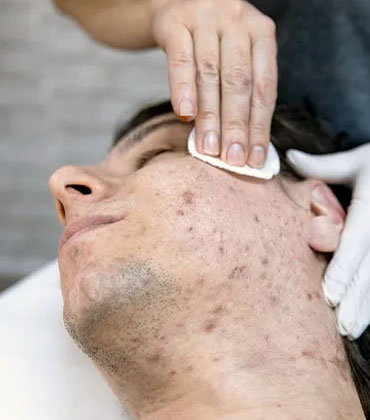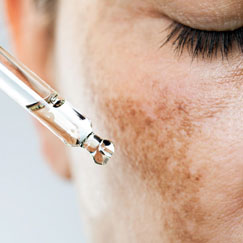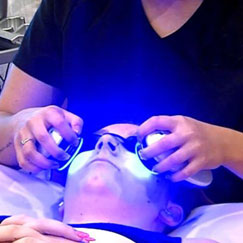Skin Care Treatments: Nourish, Rejuvenate, and Protect Your Skin for a Healthier Glow
Skin care treatments are a broad category of professional procedures designed to improve skin health, address concerns like acne, pigmentation, aging, and enhance your skin’s overall appearance. These treatments range from gentle facials to more advanced therapies like chemical peels, microdermabrasion, LED therapy, and microneedling. By deeply cleansing, exfoliating, hydrating, and stimulating the skin, these treatments support cellular turnover, boost collagen, and restore balance. Whether performed as a one-time refresh or as part of a long-term routine, skin care treatments work by targeting specific skin layers with clinically proven techniques and ingredients. The goal is to achieve radiant, clearer, and more youthful-looking skin, while also promoting long-term skin health.
Common Treatment Areas & What It Addresses
Skin Care Treatments usually covers the following areas:
- ✓ Face: Targets acne, dullness, aging signs, and uneven texture.
- ✓ Neck: Reduces fine lines and improves skin firmness.
- ✓ Décolletage: Minimizes sun damage and evens out skin tone.
- ✓ Back (Back Facial): Treats breakouts and smooths skin texture.
- ✓ Hands: Rejuvenates dry, aging hands and reduces age spots.
- ✓ Scalp (Hydrafacial Keravive): Promotes scalp health and hair growth.
Who Should Consider Skin Care Treatments?
Skin care treatments are suitable for anyone looking to improve the look, feel, and health of their skin. Whether you’re dealing with acne, signs of aging, sensitivity, or dryness—or simply want a radiant glow—these treatments offer tailored solutions for every skin type, tone, and concern. Both preventive and corrective options are available.
Understanding Risks: Safety, Side Effects, and Smart Choices
Skin care treatments are generally safe when performed by certified professionals. However, mild side effects can occur depending on the procedure and skin type. Some of the potential side effects of these treatments are:
- ✓ Redness or Irritation
- ✓ Temporary Dryness or Flaking
- ✓ Mild Swelling
- ✓ Breakouts or Purging
- ✓ Sensitivity to Sunlight
- ✓ Allergic Reaction to Products
How to Prepare for Your Skin Care Treatments
Avoid exfoliating products, retinoids, and tanning for 3–5 days prior to treatment. Inform your provider of any allergies, medications, or recent cosmetic procedures. Come with clean skin, free of makeup or lotions. Hydrate well and avoid alcohol or caffeine the day before to reduce inflammation and support optimal results.
What to Expect During a Skin Care Treatment
Most treatments begin with a skin consultation, followed by cleansing, exfoliation, and targeted techniques depending on your concerns. You may experience a warm or tingling sensation, but discomfort is typically minimal. Sessions can last from 30 to 90 minutes. Many patients leave feeling refreshed with noticeable improvements immediately or within a few days.
What to Know About Aftercare & Results
Aftercare may include using gentle, hydrating skincare and avoiding sun exposure, exfoliation, and makeup for 24–48 hours. Results vary by treatment type but often include smoother, brighter skin. Some treatments require a series for full effects, with improvements building over time. Regular sessions can enhance and maintain long-term skin health and radiance.




